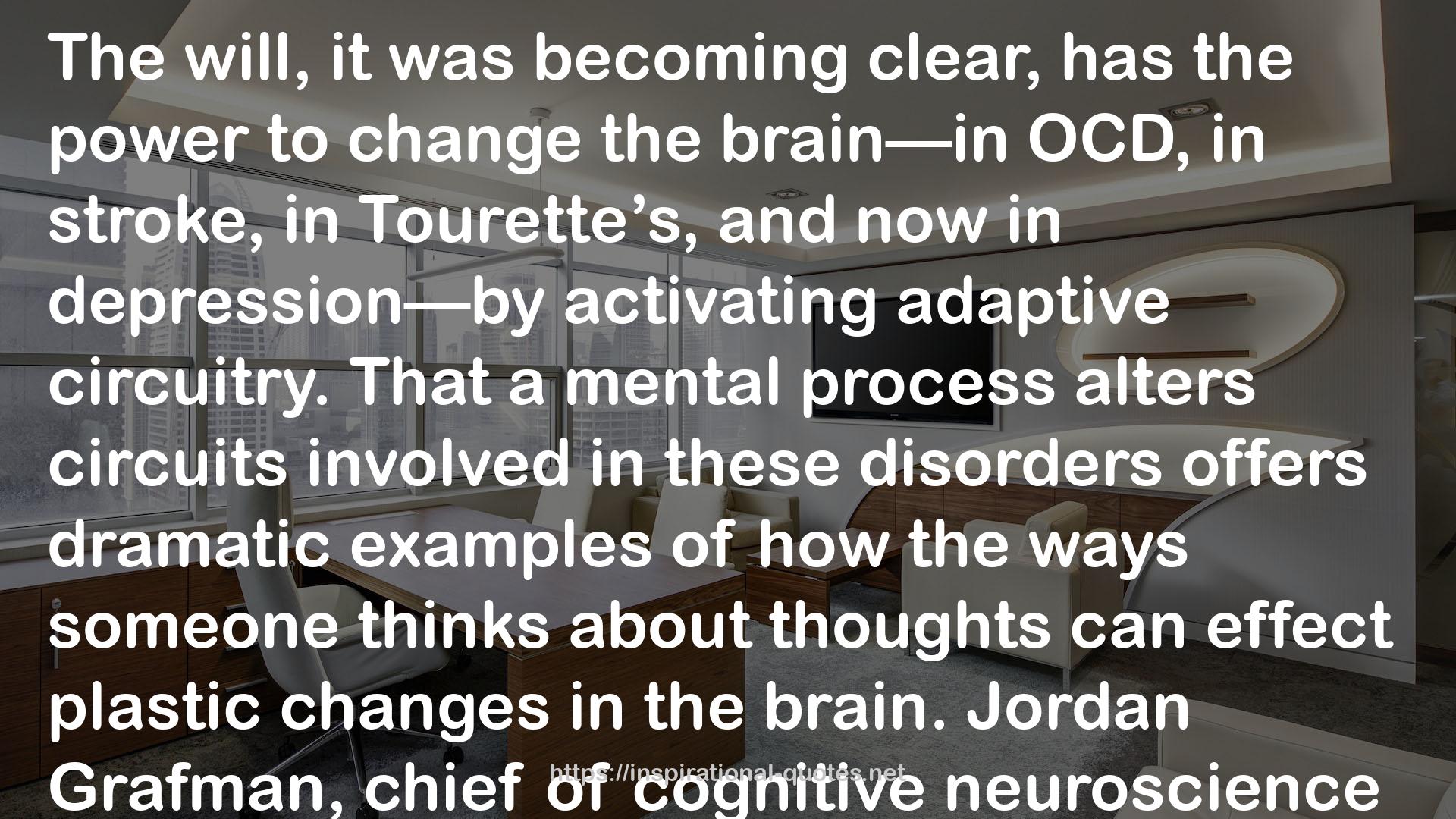" The will, it was becoming clear, has the power to change the brain—in OCD, in stroke, in Tourette’s, and now in depression—by activating adaptive circuitry. That a mental process alters circuits involved in these disorders offers dramatic examples of how the ways someone thinks about thoughts can effect plastic changes in the brain. Jordan Grafman, chief of cognitive neuroscience at the National Institute of Neurological Disorders and Stroke, calls this top-down plasticity, because it originates in the brain’s higher-order functions. “Bottom-up” plasticity, in contrast, is induced by changes in sensory stimuli such as the loss of input after amputation. Merzenich’s and Tallal’s work shows the power of this bottom-up plasticity to resculpt the brain. The OCD work hints at the power of top-down plasticity, the power of the mind to alter brain circuitry. "
― Jeffrey M. Schwartz , The Mind and the Brain: Neuroplasticity and the Power of Mental Force
